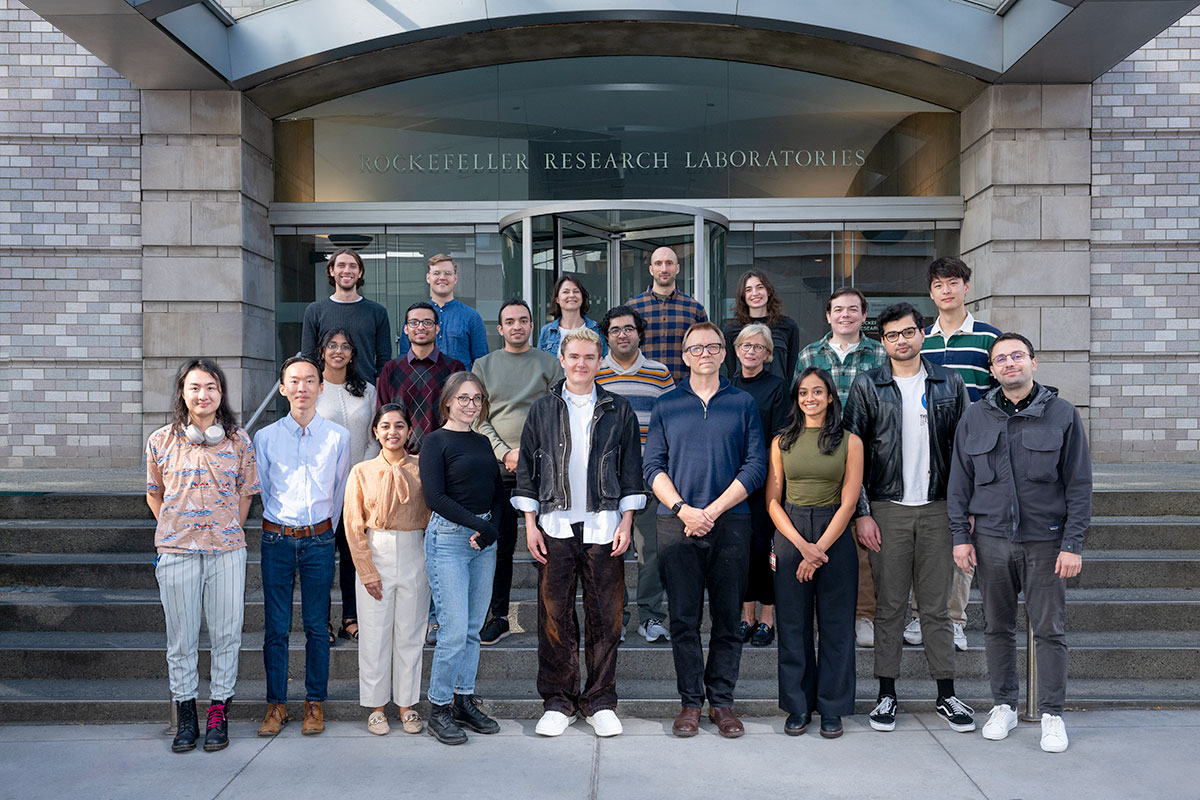The Quaid Morris Lab
Research

Our lab uses machine learning and artificial intelligence to do biomedical research, focusing on cancer evolution, gene regulation, clinical informatics, and gene function prediction. A key interest is the role of RNA-binding proteins (RBPs) in post-transcriptional regulation. We focus on developing computational and experimental techniques to determine the RNA specificities of RBPs (both sequence and structural) and use these specificities to predict their target transcripts, determine RBP function, and ultimately decipher the regulatory code. Another focus is reconstructing and modelling somatic evolution (pre- and post-cancer) using bulk and single-cell genomic data. In general, we are focused on using large, heterogeneous functional genomic datasets to uncover insights about gene function. Recently, we have becoming increasingly interested in using artificial intelligence and predictive analytics, along with electronic medical records, to inform patient care, particularly in the domain of auto-immune disease.

Publications Highlights
Sasse, A., Ray, D., Laverty, K.U., Tam, C.L., Albu, M., Zheng, H., Levdansky, Y., et al. (2025). A resource of RNA-binding protein motifs across eukaryotes reveals evolutionary dynamics and gene-regulatory function. Nature Biotechnology, 1-11.
Shi, R., Dalal, T., Fradkin, P., Koyyalagunta, D., Chhabria, S., Jung, A., Tam, C., et al. (2025). mRNABench: A curated benchmark for mature mRNA property and function prediction. bioRxiv, 2025.07.05.662870.
Koyyalagunta, D., Ganesh, K., & Morris, Q. (2025). Inferring cancer type-specific patterns of metastatic spread using Metient. bioRxiv, 2024.07.09.602790.
Harrigan, C.F., Campbell, K., Morris, Q., & Funnell, T. (2025). Damage and Misrepair Signatures: Compact Representations of Pan-cancer Mutational Processes. bioRxiv, 2025.05.29.656360.
Darmofal, M., Suman, S., Atwal, G., Toomey, M., Chen, J.F., Chang, J.C., et al. (2024). Deep-learning model for tumor-type prediction using targeted clinical genomic sequencing data. Cancer Discovery, 14(6), 1064-1081.
People

Quaid Morris, PhD
Member
- Computational biologist Quaid Morris uses artificial intelligence techniques and develops machine learning algorithms to study gene regulation, cancer evolution, clinical informatics, and other topics in systems biology.
- PhD, Massachusetts Institute of Technology
- [email protected]
- Email Address
Members




















































Achievements
- Clarivate Web of Science Highly Cited Research (2018-present)
- CIFAR Artificial Intelligence Chair (2018-present)
- Assigned RNA-binding preferences to >20% of metazoan RNA-binding proteins (and >10% of eukaryotic RBPs) (w/ Timothy Hughes)
- Developed GeneMANIA algorithm and website (w/ Gary Bader)
Open Positions
To learn more about available postdoctoral opportunities, please visit our Career Center
To learn more about compensation and benefits for postdoctoral researchers at MSK, please visit Resources for Postdocs
Get in Touch
-
Lab Head Email
Disclosures
Members of the MSK Community often work with pharmaceutical, device, biotechnology, and life sciences companies, and other organizations outside of MSK, to find safe and effective cancer treatments, to improve patient care, and to educate the health care community. These activities outside of MSK further our mission, provide productive collaborations, and promote the practical application of scientific discoveries.
MSK requires doctors, faculty members, and leaders to report (“disclose”) the relationships and financial interests they have with external entities. As a commitment to transparency with our community, we make that information available to the public. Not all disclosed interests and relationships present conflicts of interest. MSK reviews all disclosed interests and relationships to assess whether a conflict of interest exists and whether formal COI management is needed.
Quaid Morris discloses the following relationships and financial interests:
No disclosures meeting criteria for time period
The information published here is a complement to other publicly reported data and is for a specific annual disclosure period. There may be differences between information on this and other public sites as a result of different reporting periods and/or the various ways relationships and financial interests are categorized by organizations that publish such data.
This page and data include information for a specific MSK annual disclosure period (January 1, 2024 through disclosure submission in spring 2025). This data reflects interests that may or may not still exist. This data is updated annually.
Learn more about MSK’s COI policies here. For questions regarding MSK’s COI-related policies and procedures, email MSK’s Compliance Office at [email protected].